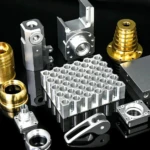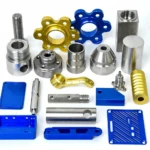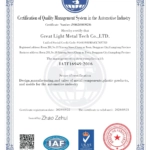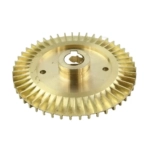As a trusted provider of precision machining services, Great Light recognizes the importance of addressing the potential risks associated with CNC machining. Although computer numerical control (CNC) machining provides unparalleled accuracy and manufacturing efficiency, it also carries its own challenges and dangers. Understanding these risks is critical to manufacturers, operators and customers to ensure a safe, high-quality and reliable production process.
One of the main risks of CNC processing is the potential for accidents and injuries. High-speed movement of machine parts and the use of sharp cutting tools pose significant dangers if appropriate safety protocols are not strictly followed. Operators must undergo thorough training to understand machinery and follow safety guidelines such as wearing protective gear and ensuring work space is free of barriers. In addition, regular maintenance of equipment is essential to prevent mechanical failures that may lead to accidents.
Another important risk is defective parts. This can be due to various factors, including incorrect CNC machine programming, inappropriate materials or machine calibration issues. Flawed parts can lead to expensive rework, production delays, and more importantly, safety issues for the final product. To mitigate this risk, quality control measures must be taken, including thorough inspection of the material before processing and rigorous testing of finished parts.
In addition, the environmental impact of CNC processing should not be ignored. The process can generate a large amount of waste, including metal shaving, coolant and other chemicals, which can damage the environment if not properly handled. Manufacturers have a responsibility to implement sustainable practices such as recycling waste materials and using environmentally friendly coolants to minimize their environmental footprint.
In the context of CNC processing, network security has also become an increasingly important focus. As machines become more connected to the Internet and to each other, the risks of cyber attacks and data breaches will increase. This can lead to intellectual property theft, production damage, and even situations where machines are compromised and maliciously operated. Implementing strong cybersecurity metrics such as encryption, secure networks, and regular software updates is critical to preventing these threats.
Finally, the economic risks associated with CNC processing, especially for small and medium-sized enterprises (SMEs). The initial investment in CNC equipment and technology can be considerable and there is always the risk of being outdated before the machinery generates sufficient return on investment. In addition, fluctuations in market demand may cause insufficient capacity for manufacturers, resulting in financial stress. To address these risks, companies must conduct comprehensive market research, carefully plan, and consider flexible manufacturing strategies that can adapt to changing market conditions.
In short, while CNC machining offers enormous benefits in terms of precision, speed and efficiency, it also presents several risks that must be carefully managed. By understanding these risks and taking proactive measures to mitigate them, manufacturers can ensure a safe, reliable and high-quality production process. From a clear perspective, we prioritize operational safety, product quality, and practice sustainability, making us a trusted partner for all your precise machining needs.
FAQ:
Q: What are the main safety risks associated with CNC processing?
A: The main safety risks include accidents and injuries to high-speed machinery and sharp cutting tools, as well as the potential health hazards of materials and coolants used in this process.
Q: How to prevent defective parts in CNC machining?
A: Defective parts can be prevented by correctly programming the CNC machine, using appropriate materials, conventional machine calibration, and thorough quality control inspection.
Q: What environmental considerations should be considered in CNC machining operations?
A: Operations should consider using environmentally friendly coolants to recover waste and implement sustainable practices to minimize their environmental footprint.
Q: Why is network security important in CNC machining?
A: Cybersecurity is crucial to prevent intellectual property theft, production disruptions, and potential physical harm caused by machinery.
- Q: What economic risks do small and medium-sized enterprises face when investing in CNC processing?
A: The risks faced by SMEs include high initial investment, potential outdated machinery, and fluctuations in market demand, which may lead to insufficient capacity and financial pressure.



















